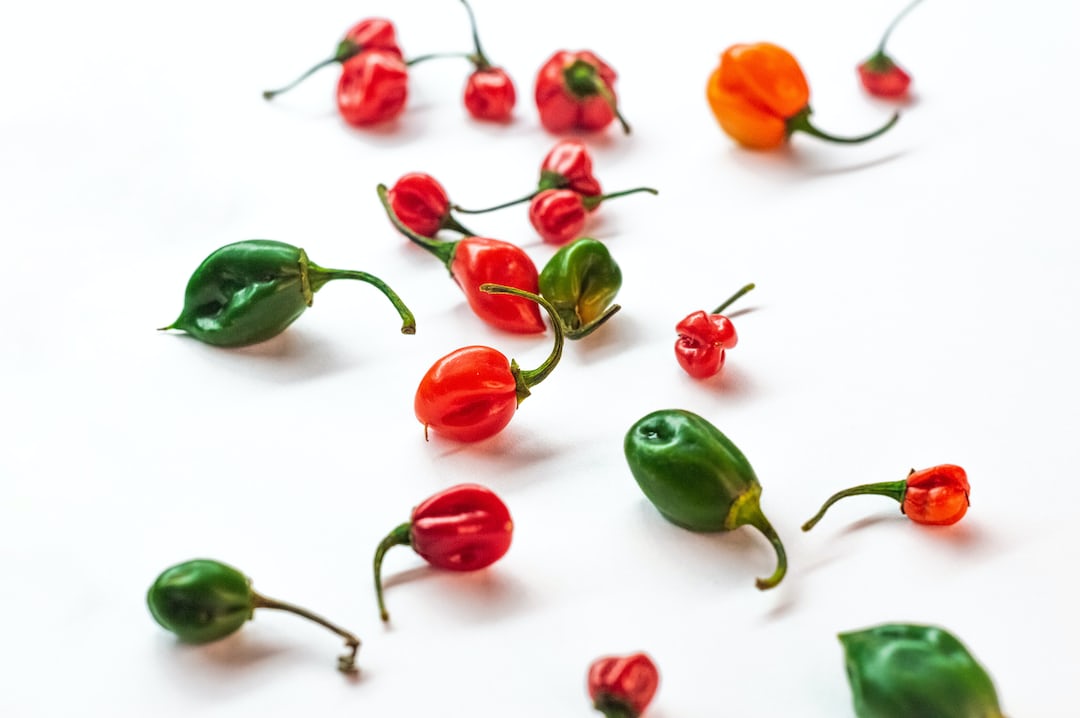Growing Habanero Peppers: A Simple Step-By-Step Guide

Growing Habanero
Growing habanero peppers rewards gardeners with fiery flavor and vibrant color. Start these spicy beauties indoors six to eight weeks before the last frost, planting seeds in warm, moist soil to boost germination rates. Once outdoors, habaneros thrive under full sun and steady watering, bringing intense heat and bright color to your garden bounty—read on for practical steps that'll turn your garden into habanero heaven.
Growing Habanero: A Simple Step-By-Step Guide
Start seeds like you mean it
I sow Capsicum chinense 8 to 12 weeks before last frost because they mature slowly, usually 90 to 120 days. Warmth speeds everything.
Keep the medium at 80 to 90 F or 27 to 32 C. A covered tray and a heat source help hold that range.
Use a sterile seed mix and sow 0.25 inch or 6 mm deep. I mist, never drench, to avoid damping off.
Once sprouted, give 14 to 16 hours of bright light daily. I keep lights 2 to 3 inches, 5 to 8 cm, above the canopy.
“Pepper seed germination is fastest near 85 F, with strong, uniform stands at sustained warm soil temperatures.” Source: Chile Pepper Institute, New Mexico State University
Pot up and toughen up
Transplant to 3 to 4 inch, 7.5 to 10 cm, pots at first true leaves. I feed at quarter strength with a balanced fertilizer to avoid leggy plants.
Start hardening off 7 to 10 days before planting out. A few hours of outdoor shade, then longer stints, then soft sun, works well.
Right site, right soil
Growing Habanero thrives in full sun, at least 8 hours. I aim for beds that warm quickly and drain freely.
Target pH 6.0 to 6.8 with ample organic matter. A soil test saves guesses and avoids overfeeding.
“Peppers perform best near pH 6.0 to 6.8 with steady moisture and high fertility that is not excessive in nitrogen.” Source: University of Florida IFAS Extension
Transplant timing that sticks
Move plants outdoors after nights stay above 55 F, 13 C, and soil holds 65 F, 18 C, by mid morning. Cold roots sulk for weeks.
Space 18 to 24 inches, 45 to 60 cm, in rows 24 to 36 inches, 60 to 90 cm, apart. I set them at the same depth and water in with a phosphorus-forward starter.
Mulch 2 to 3 inches, 5 to 7.5 cm, with straw or shredded leaves. Mulch stabilizes moisture and curbs weeds.
Heat, light, and water rhythm
Ideal daytime temps ride 70 to 85 F, 21 to 29 C. Repeated highs over 95 F, 35 C, can cause blossom drop.
I use 30 percent shade cloth during brutal heat. Consistent soil moisture beats big gulps and long droughts.
“Hot pepper fruit set declines as temperatures climb above 90 to 95 F, and plants benefit from shade during extreme heat.” Source: University of California Cooperative Extension
Feeding schedule that builds fruit
Before planting, incorporate a balanced fertilizer or slow release following soil test rates. Excess nitrogen grows leaves at the expense of pods.
I side-dress a low N, higher K mix at first bloom, then again three weeks later. Containers get weekly light feedings since nutrients leach faster.
Train, prune, and support
I stake or cage each plant early so stems never snap in August winds. A single tie at 8 to 12 inches, 20 to 30 cm, keeps the canopy tidy.
Pinch only very early blossoms until plants are well rooted. I remove interior leaves sparingly to prevent sunscald on developing fruit.
Pollination and yield tweaks
Peppers self-pollinate, yet airflow and bees boost set. I tap the cage each morning to shake pollen loose during peak bloom.
Keep humidity moderate and the foliage dry by watering at the base. Wet flowers often abort.
Pests and diseases I actually see
Aphids, whiteflies, thrips, spider mites, and hornworms show up first on stressed plants. A sharp water spray knocks many off before they colonize.
Sticky cards flag early problems. I rotate neem oil or insecticidal soap carefully, never during midday heat, and use Bacillus thuringiensis for caterpillars.
Watch for bacterial leaf spot, Phytophthora root rot, and mosaic viruses. Good spacing, sanitation, and three-year nightshade rotation reduce outbreaks.
“Phytophthora capsici thrives in saturated soil, so drainage and crop rotation are your first lines of defense.” Source: Michigan State University Extension
Harvest, heat, and handling
I harvest at full color for peak flavor and aromatics, orange, red, chocolate, or peach depending on cultivar. Use pruners to avoid tearing spurs.
Wear gloves and never rub your eyes. Habanero heat ranges roughly 150,000 to 350,000 Scoville Heat Units.
“Chilling injury occurs in peppers below 45 F, 7 C, with pitting and water-soaked areas over time.” Source: UC Davis Postharvest Technology Center
Store fresh pods at 45 to 50 F, 7 to 10 C, for short periods. I dry at 125 F, 52 C, until brittle for clean, smoky powder.
Saving seed that stays true
Isolate plants by at least 150 feet, 45 m, from other peppers if you want stable seed. Bees wander farther than you think.
Fermentation is optional for peppers. I rinse mature seed from ripe pods, dry for two weeks, then store cool with a desiccant.
Overwintering to jump-start next season
Growing Habanero behaves as a tender perennial in frost-free climates. I lift a favorite plant into a 5 to 7 gallon, 19 to 26 L, pot, prune by one third, and keep it near 60 F, 16 C.
Light is nonnegotiable indoors. A bright window plus a small LED keeps it alive until spring.
Troubleshooting quick hits
- Flowers dropping: heat stress, low humidity, or overfertilizing with nitrogen.
- Sunscald: pale, papery patches on fruit, add leaf cover or light shade cloth.
- Yellow lower leaves: waterlogging or early nitrogen deficiency.
- Blossom end rot: irregular watering or calcium imbalance, steady moisture fixes most cases.
- Small pods: crowded plants, insufficient light, or cool nights.
Best cultivars for different goals
- Orange Habanero: classic citrus aroma and reliable yields, 150k to 250k SHU.
- Red Savina: bred for heat and productivity, often hotter than standard types.
- Caribbean Red: dense set on compact plants, great for sauces.
- Chocolate Habanero: smoky, complex flavor that shines in mole and rubs.
- Peach Habanero: softer fruit wall and a perfume that plays well raw.
- Habanada: heatless lookalike with the same floral nose for salads and pickles.
Containers that crank out pods
I use at least 5 gallons, 19 L, per plant with a fast, airy mix. Add extra perlite for drainage and a slow release base charge.
Water deeply until it runs out the bottom, then wait until the top inch, 2.5 cm, dries. Top-dress with compost midseason to buffer salts.
Companions and succession
Basil and marigold around peppers draw beneficials and keep soil busy. I stagger plantings two weeks apart for a longer flush of ripe pods.
After harvest season peaks, I prune lightly and feed once more. Late fruit often ripens indoors on the counter in a warm room.
My field notes, brass tacks edition
- Soil thermometer beats guessing, I transplant only when it reads 65 F, 18 C, at 10 am.
- First pod sacrifice pays, removing the earliest flower speeds canopy growth and later yield.
- 30 percent shade cloth during heatwaves keeps flowers on and color even.
- A weekly 1 to 1.5 inches, 25 to 38 mm, of water total, including rain, prevents stress spikes.
- Fertility sweet spot, leaf color deep green, but you can still see veins clearly and growth stays compact.
Gear checklist for Growing Habanero with fewer headaches
- Seed starting trays with humidity cover and a reliable heat source for 80 to 90 F, 27 to 32 C.
- Full-spectrum LED grow light with timer, 14 to 16 hours for seedlings.
- Soil thermometer, pH kit, and EC meter if you run soilless mixes.
- Quality pruners, soft ties, stakes or a small tomato cage.
- Low N, higher K fertilizer for bloom and fruit set, plus compost for structure.
- Sticky cards and a hand lens, early detection beats crisis spraying.
- Breathable gloves and goggles for harvest and processing days.
Why Growing Habanero pays off in the kitchen
That floral punch rewires salsa, stews, and pickles in a good way. A single plant delivers dozens of pods in peak soil and sun.
I char them whole for smoky sauces. I also slice and quick-pickle with carrot, onion, and lime for weeknight fire.
References I trust in practice
- Chile Pepper Institute, New Mexico State University, seed and cultivation bulletins.
- University of Florida IFAS Extension, pepper production guides and pest management notes.
- University of California Cooperative Extension and UC Davis Postharvest Technology Center, heat stress and storage data.
- Michigan State University Extension, soilborne disease prevention and rotation guidance.
- Royal Horticultural Society, home-growing advice on peppers, pH, and watering.
Cheatsheet: Quick Habanero Production for Home Growers
🌱 Choose & Start Seeds
- Heirloom seeds: select for flavor/heat
- Germinate indoors 8–10 weeks before last frost
- Soil temp: 78–85°F (25–29°C)
- Moist, not soggy starting mix
- Sprout time: 7–21 days
🌞 Provide Light & Warmth
- Bright grow lights or sunny windowsill
- 18 hrs/day light, 6 hrs darkness
- Keep temp 70–85°F (21–29°C)
🌿 Transplant & Harden Off
- Wait for night temps >55°F (13°C)
- Gradually introduce outdoors: 1–2 hrs/day increasing over 7 days
- Spacing: 18–24 in (45–60 cm) apart in full sun
🪴 Soil & Planting
- Rich, loose soil pH 6.2–7.0
- Mix in compost before planting
- Mulch to retain moisture & suppress weeds
💧 Water & Feed
- Consistent moisture; never soggy
- Deep water 1–2 times/week
- Fertilize every 2 weeks with balanced organic feed
🌸 Pollination & Support
- Gently shake plants or attract pollinators
- Stake for support if heavy with fruit
🔥 Harvest & Enjoy
- Pick when fully orange/red (usually 90–100 days from transplant)
- Use gloves: oils can irritate skin
- 2–3 peppers meet daily vitamin C needs
- Use fresh, dry, or freeze for year-round supply
🛠️ Tools and Products You’ll Need
- Seedling tray, heat mat, grow lights
- Organic potting mix, compost
- Mulch
- Gloves, trowel, watering can
- Stake or cage for larger plants
Start seeds in warm, moist soil 8–10 weeks before frost ends. Use heat mat if needed.
Grow under lights or in sun, keeping temps 70–85°F (21–29°C).
Move seedlings outdoors once nights exceed 55°F (13°C). Harden off gradually.
Water evenly, mulch, fertilize biweekly. Stake if heavy fruit.
Pick fruit once mature; use gloves. Store dried, frozen, or fresh.
Frequently Asked Questions about Growing Habanero Peppers
How long does it take habanero peppers to mature?
Habanero peppers typically take 75 to 90 days from transplanting to produce ripe fruit. For best results, transplant seedlings outdoors once temperatures remain consistently above 70°F (21°C) during the day and above 55°F (13°C) at night.
What soil type suits habanero peppers best?
Choose a well-drained, rich, and slightly acidic soil with a pH ranging between 5.5 and 6.5. Enhance the planting medium by blending in organic matter such as compost or composted manure before planting.
How often should I water habanero plants?
Water habanero peppers deeply and regularly, ensuring the soil stays consistently moist but not waterlogged. Typically, this means providing water once or twice weekly, adjusting based on rainfall and weather conditions. Aim for approximately 1 to 2 inches (2.5 to 5 cm) of water each week.
Should habanero peppers be fertilized?
Yes, fertilize habanero peppers with a balanced, slow-release fertilizer every 4 to 6 weeks during the growing season. Select fertilizers with equal nitrogen, phosphorus, and potassium (e.g., 10-10-10 or 5-5-5) to encourage steady growth and abundant fruit.
How can I speed up germination times for habanero seeds?
Accelerate germination by soaking seeds in lukewarm water for 8 to 12 hours before planting. Maintain consistent warmth between 75°F (24°C) and 85°F (29°C) and keep the soil moist but not soggy. Germination typically starts within 7 to 14 days.
Is pruning beneficial for habanero plants?
Pruning promotes healthy growth, airflow, and fruit production. Remove lower leaves and stems regularly, especially those touching the soil, to prevent disease. Additionally, pinch off the initial blossoms early in the growing season to encourage vigorous plant development before fruit appears.
How do I protect habanero peppers from pests?
Monitor regularly for common garden pests like aphids, spider mites, and whiteflies. Control infestations quickly with gentle pruning, insecticidal soap sprays, or neem oil applications. Maintaining regular garden sanitation practices reduces the chance of pest outbreaks significantly.
When is the right time to harvest habanero peppers?
Pick habanero peppers when they achieve their characteristic vibrant color, typically bright orange or red, and easily separate from the plant with a gentle tug. Wearing gloves while harvesting helps avoid skin irritation from capsaicin contained in habanero peppers.
Growing Habanero demands patience, heat, and a respect for the pepper’s wild side. Start with rich soil, keep things warm, and don’t skimp on sunlight. Consistent watering brings steady growth—just don’t drown the roots. These plants thrive when you let them dry a bit between drinks. Fertilizer helps, but go easy; too much, and you’ll get leaves, not fire.
Watch for pests and support the stems once the fruit starts weighing in. Pick your habaneros when they turn that wicked orange. Harvesting at the right time rewards you with heat, flavor, and a punch that can wake up any dish. If you’re looking to expand your skills beyond peppers, try your hand at growing cherry tomatoes or planting cilantro—they’ll pair perfectly with your homegrown heat. In the end, growing habanero is all about care, sun, and a little bit of guts. Enjoy the burn—you’ve earned it.



